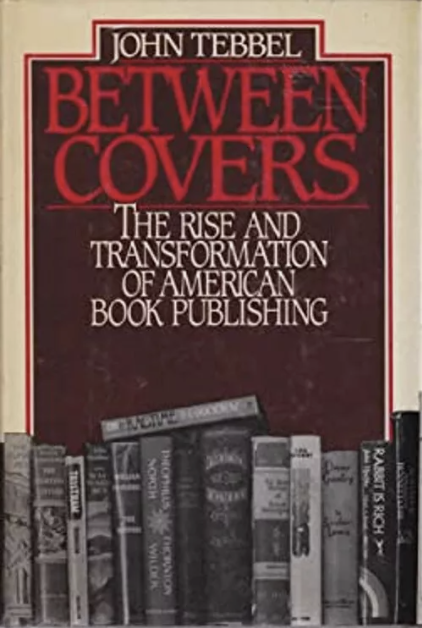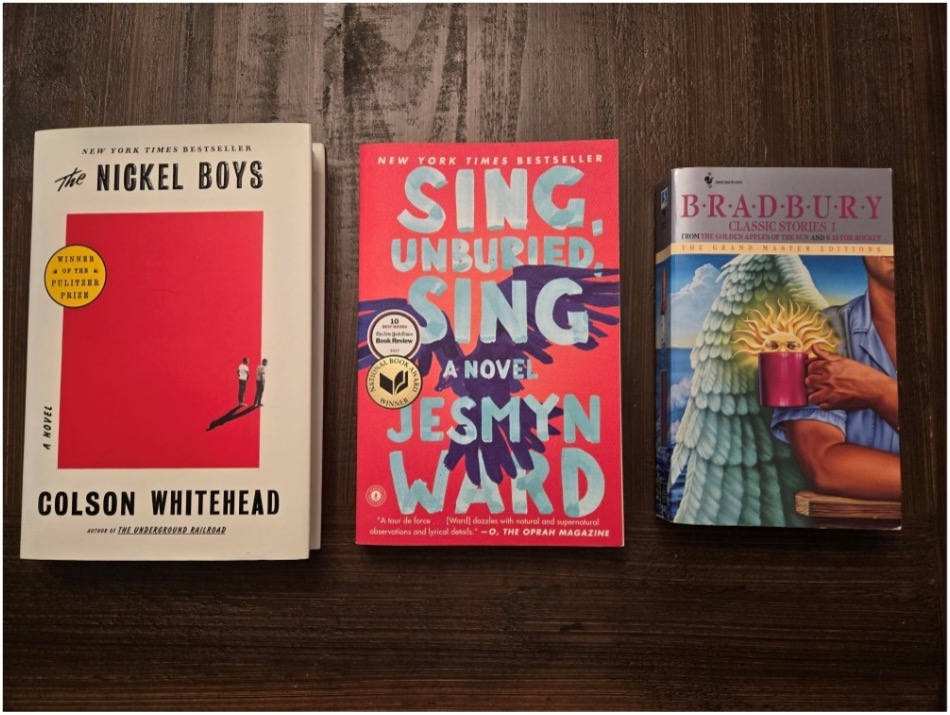Not another reading list
 Sherri Brown is Librarian for English and Digital Humanities at the University of Virginia Libraries. She is a member of the Association for College and Research Libraries, the Association for Computers and the Humanities, and the Modern Language Association. Sherri serves as liaison to the Department of English, and provides communication and outreach, research support, and instructional services to its faculty and students.
Sherri Brown is Librarian for English and Digital Humanities at the University of Virginia Libraries. She is a member of the Association for College and Research Libraries, the Association for Computers and the Humanities, and the Modern Language Association. Sherri serves as liaison to the Department of English, and provides communication and outreach, research support, and instructional services to its faculty and students.
Summer semester is well underway, and now is the time we may find our inboxes and newsfeeds flooded with recommendations for the latest and greatest summer reads. How do we decide what to read next, though? Jump on the bandwagon and read the latest bestseller? Use a recommender system that suggests books based on ones we have liked in the past?
As I looked back at what I’ve read so far this summer and what is still on my to-read list, I decided to delve into some scholarship on how we select our next book and compare that to some of my practices. The following are some thoughts to consider as you ponder your next read:
The freedom to self-select what you read is a powerful motivator.
In the late 1990s, Professor Catherine Sheldrick Ross of the University of Western Ontario led a study interviewing avid readers about their book selection process. In addition to factors that affect selection, like mood and topic/genre, Ross notes the initial importance of choice in making reading enjoyable. She writes, “[People] choose reading over some other competing activity because of the inherent pleasure in the reading experience itself. That pleasure is enhanced when readers are reading something that they themselves have selected.” As children, our reading habits are bolstered by successful reading choices (selecting something we end up liking). But it’s a process – we must learn over time through our successful and unsuccessful choices what we like and what we do not. And we must learn that it is okay to put down a book that is not to our liking, even if it has received rave reviews from others.

thanks to having to return it.
Between Covers: The Rise
and Transformation of
American Book Publishing
by John Tebbel (1987)
Time constraints can also be a powerful motivator.
While I agree that the freedom to choose what to read next is important, I also find that having a deadline is an excellent motivator for some books. Case in point: I borrowed a book from the UVA Library months ago on the history of book publishing in America. The topic had intrigued me enough to bring it home (and I hoped to learn something), but it just wasn’t top on my list for picking up as leisure reading. Then, I received a notice that the book was recalled by another library patron, which meant I had to return it in ten days. I was now faced with a decision – sit down and commit to reading it, or let it go? In this case, I chose the former and plowed through it in the time I had. I’m glad that I read it, but I needed that push to get me to decide how significant it was to me. There have been other times I’ve done the opposite and returned a recalled book without having cracked it – the imposed deadline helped me to decide by weighing interest versus time.
Judging a book by its cover. . . and its format
A 2018 Journal of Retailing and Consumer Services study examined factors influencing fiction book purchasing habits. In addition to the ability of good cover art to attract notice, other substantial physical book features included a synopsis on the cover, author’s name recognition, and book title. I am also heavily influenced by a book’s format – my ideal book is a print trade paperback. I find hardback books cumbersome for reading while lounging, and as I get older, the type in mass-market paperbacks seems small and cramped and, therefore, less pleasurable for reading. This doesn’t mean I do not read plenty of fiction and nonfiction that don’t meet my ideal book format. In an academic library like UVA, most books are in hardback, and the covers have been removed. Luckily, the internet makes it easy to find a synopsis (and a cover, if that’s important to you) that can be reviewed before purchasing or borrowing.

most attracted to the middle trade paper
format. (Also, notice that the hardback of The
Nickel Boys isn’t very big as hardbacks go –
that’s because I really avoid buying them!)
Availability and convenience
A final major factor in what we might choose to read is ease of access. I could spend way too much of my salary buying books, but I try to limit my book purchasing these days. Luckily, I work in a very large library with access to over five million print books. Still, like any library, our collection is prioritized to the research and teaching needs of the University. That means sometimes what I want to read isn’t in our collection, or someone else already has it out on loan. The local public libraries are great, but there is often a waitlist for popular titles. And, if I want to read a newly published book, I’ll likely have to wait a while for it to be released in my preferred paperback format. That’s where I find that having an app to take note of books I’m interested in reading is super helpful. I use Goodreads to track what I want to read (and what I’ve read, which is very useful when I want to make a recommendation but can’t remember an exact title or author). And if Goodreads isn’t your thing, there are plenty of other online alternatives to meet your preferences.
At the end of the day, why you choose a book is less important than that you do. Whether you want to learn something new or escape from reality for a while, I encourage everyone to read a book this summer.
References:
Leitão, Luís, Susanne Amaro, Carla Henriques and Paula Fonesca. “Do Consumers Judge a Book by Its Cover? A Study of the Factors that Influence the Purchasing of Books.” Journal of Retailing and Consumer Services, vol. 42, 2018, pp. 88-97.
Ross, Catherine Sheldrick. “Making Choices: What Readers Say About Choosing Books to Read for Pleasure.” The Acquisitions Librarian, vol. 13, no. 25, 2000, pp. 5-21.
- Making the Promise Real: How a UN Tax Convention Can Fulfill the UNDHR’s Vision
- Having a Drink With Your Donkey: The Absurd in Antiquity
- What Happens to UVA’s Recycling? A Behind the Scenes Look at Recycling, Composting, and Reuse on Grounds
- UVA Club of Atlanta: Virtual Pilates Class
- UVA Club of Fairfield/Westchester: Cavs Care - Food Pantry Donation Drive
- UVA Club of Washington DC: Holiday Trivia Night